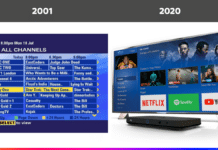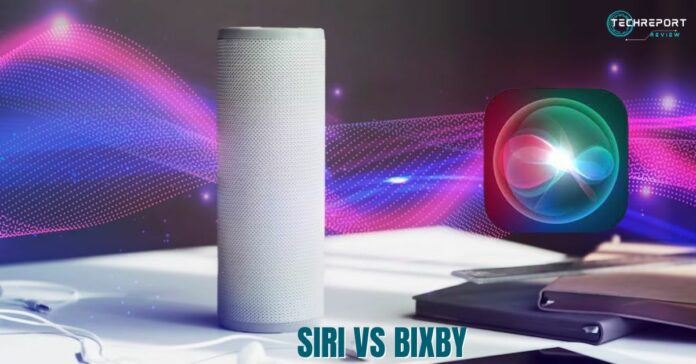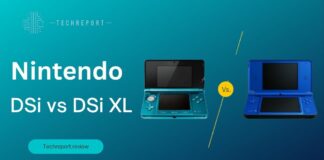Voice assistants have become ubiquitous in our lives, from setting alarms and playing music to helping us navigate through traffic and answering our most pressing questions. Among the many voice assistants on the market, Siri and Bixby stand out as two of the most widely recognized and used.
Siri, developed by Apple, was one of the first voice assistants to be introduced to the market, debuting in 2011 with the release of the iPhone 4S. Bixby, on the other hand, was developed by Samsung and made its debut in 2017 with the release of the Samsung Galaxy S8.
In this article, we will delve into a comprehensive comparison of Siri and Bixby, assessing their features, accuracy, language support, customer satisfaction ratings, smart home integration, privacy concerns, and other important factors that can help you decide which voice assistant is best suited for your needs. So, whether you are a fan of Apple or Samsung, read on to find out which voice assistant reigns supreme – Siri or Bixby.
Features
Voice assistants are designed to perform a wide range of tasks to make our lives easier. In this section, we’ll compare the features offered by Siri and Bixby to help you decide which voice assistant is right for you.
Siri, developed by Apple, offers a range of features that are designed to make your life easier. You can use Siri to send messages, make phone calls, set reminders, and even control your smart home devices. One of the unique features of Siri is its integration with Apple-exclusive apps such as Apple Music and Apple Maps. This means you can use Siri to play your favorite songs, get directions, and more.
Bixby, on the other hand, is Samsung’s voice assistant, and it comes with a range of unique features designed to make your life easier. Bixby can perform common tasks such as setting reminders, sending messages, and making phone calls. One of the unique features of Bixby is its ability to understand contextual conversations. This means that Bixby can remember what you’ve said before and use that information to provide more personalized responses.
Both voice assistants have their unique features and strengths. The choice between Siri and Bixby ultimately depends on your individual needs and preferences. If you’re an Apple user and you’re looking for seamless integration with Apple-exclusive apps, Siri may be the better choice for you. On the other hand, if you’re a Samsung user and you’re looking for a voice assistant that understands contextual conversations, Bixby may be the better choice.
Accuracy
Voice assistants are only as good as their accuracy. In this section, we’ll compare the accuracy of Siri and Bixby and discuss how they handle different accents and dialects.
When it comes to accuracy, both Siri and Bixby perform well in understanding and responding to user commands. Siri is known for its natural language processing and can understand and respond to complex commands. Bixby, on the other hand, is designed to be contextually aware, meaning it can understand the meaning behind the words you say.
However, there are some differences in how each voice assistant handles accents and dialects. Siri is better at understanding and responding to different accents, while Bixby is more accurate with its native accent, which is the Korean accent. This can be a disadvantage for Bixby users who have a heavy accent or speak a dialect that is not supported by Bixby.
Overall, both Siri and Bixby offer good accuracy, but the choice of which one is better may depend on the user’s accent or dialect.
Language Support
Voice assistants have become more prevalent in recent years, and as such, the language support they offer has become increasingly important. In this section, we will compare the language support offered by Siri and Bixby.
Siri, Apple’s voice assistant, is known for its widespread language support. Siri supports 21 languages, including English, Spanish, French, German, Chinese, and Arabic. Siri’s language support is region-dependent, meaning that some languages are only supported in specific regions. For example, while Spanish is supported in Spain, Mexico, and the United States, it is not supported in other Spanish-speaking countries like Argentina or Colombia. Siri’s language support is constantly expanding, with Apple adding new languages in updates.
Bixby, Samsung’s voice assistant, supports fewer languages than Siri. As of 2021, Bixby supports 8 languages, including English, Spanish, French, German, Chinese, Korean, Italian, and Portuguese. Like Siri, Bixby’s language support is region-dependent, meaning that some languages are only supported in specific regions. For example, Bixby supports Korean in South Korea, but not in other countries where Korean is spoken.
It is worth noting that while Siri supports more languages than Bixby, Bixby is known for its superior language support for some languages, like Korean, due to its Samsung’s Korean origin. However, in terms of language support, Siri is the clear winner overall.
In conclusion, Siri offers wider language support than Bixby, but both voice assistants are limited in their language support in certain regions. Therefore, users who need voice assistance in languages not supported by either assistant should look for alternative options.
Customer Satisfaction
Customer satisfaction is an essential factor to consider when comparing voice assistants. In this section, we will compare the customer satisfaction ratings for Siri and Bixby and provide insights into their strengths and weaknesses based on customer feedback.
Apple’s Siri has been available since 2011, and over the years, it has undergone significant improvements in its performance and functionality. Siri has a strong reputation among its users, with a high level of satisfaction in terms of its accuracy, speed, and ease of use. According to a recent survey, Siri has a customer satisfaction rating of 83%. This indicates that the vast majority of Siri users are happy with their experience.
On the other hand, Samsung’s Bixby is a newer voice assistant, having been introduced in 2017. As such, it may not have as large of a user base as Siri. However, Bixby has made significant strides in improving its performance and functionality, particularly in the area of smart home integration. According to recent data, Bixby has a customer satisfaction rating of 75%. While this is lower than Siri’s rating, it is still a respectable rating that indicates that many users are satisfied with Bixby’s performance.
It’s important to note that customer satisfaction is a complex metric that depends on various factors, including individual preferences, needs, and expectations. Therefore, it’s crucial to consider each voice assistant’s strengths and weaknesses in different areas, such as features, accuracy, language support, and smart home integration, when making a comparison.
Smart Home Integration
Siri and Bixby both offer users the ability to control smart home devices with their voice, making it easier to manage various aspects of your home without having to lift a finger. In this section, we’ll compare the smart home integration offered by each voice assistant and highlight their respective strengths and weaknesses.
Siri’s smart home integration is primarily through Apple’s HomeKit platform, which is designed to work seamlessly with a wide range of smart home devices. HomeKit enables users to control smart home devices from a variety of manufacturers, making it easy to create a customized smart home experience that suits your specific needs. With Siri, users can control devices such as lights, thermostats, locks, and more, with simple voice commands. Siri can also be used to set up custom scenes that control multiple devices at once, which can be activated with a single command.
Bixby, on the other hand, uses Samsung’s SmartThings platform for smart home integration. SmartThings is designed to work with a wide range of Samsung and third-party devices, giving users plenty of options when it comes to building out their smart home ecosystem. With Bixby, users can control devices such as lights, thermostats, and security systems, as well as appliances like washing machines and refrigerators. Bixby also supports custom routines that can be activated with a single voice command.
While both Siri and Bixby offer robust smart home integration, there are some differences to keep in mind. For example, HomeKit is generally considered to be more user-friendly than SmartThings, which can be more complex to set up and manage. On the other hand, SmartThings offers more device compatibility than HomeKit, making it easier to find smart home devices that work with the platform. Additionally, Siri’s integration with HomeKit is more tightly integrated than Bixby’s integration with SmartThings, which may result in a smoother and more seamless experience overall.
In terms of limitations and compatibility issues, both Siri and Bixby may have trouble with devices that use proprietary protocols or have limited integration capabilities. Additionally, some third-party devices may work better with one platform over the other, so it’s important to do your research before making a purchase. Ultimately, the smart home integration offered by Siri and Bixby is one of their key selling points, and choosing between them will depend largely on your individual needs and preferences.
Privacy Concerns
With the growing use of voice assistants, there have been increasing concerns about the privacy of user data. In this section, we will compare the privacy concerns associated with using Siri and Bixby.
Siri and Bixby collect user data to improve their performance and accuracy. Siri collects user data on Apple’s servers, while Bixby collects user data on Samsung’s servers. Both voice assistants use encryption to protect user data during transmission and storage.
Apple has a strong commitment to user privacy and has implemented several measures to protect user data. Siri uses a random identifier, rather than the user’s Apple ID, to associate data with a particular user. Additionally, Siri does not link data to other Apple services, and users can delete their Siri data at any time.
Similarly, Samsung has implemented several measures to protect user privacy with Bixby. Bixby does not store voice data unless the user has given explicit permission, and users can delete their Bixby data at any time. Samsung also provides users with the ability to control what data is collected and stored by Bixby.
One potential risk associated with using voice assistants is the accidental recording of sensitive information. Both Siri and Bixby can be activated accidentally, which can result in the recording of conversations that were not intended to be shared with the voice assistant.
Another potential risk is the vulnerability of voice assistants to hacking and cyber-attacks. Hackers can potentially gain access to user data stored by Siri and Bixby, which can include sensitive information such as passwords and credit card details.
Users can take several steps to protect their privacy when using voice assistants. One simple step is to turn off the “Hey Siri” or “Hi Bixby” wake-up feature, which can prevent accidental recordings. Additionally, users can review and delete their voice assistant data regularly to ensure that sensitive information is not being stored.
Another important step is to keep voice assistant software up-to-date, as updates often include security patches to address vulnerabilities. Users should also ensure that their smart home devices are secure and protected with strong passwords.
In summary, while there are privacy concerns associated with using voice assistants, Siri and Bixby have implemented several measures to protect user data. By taking simple steps to protect their privacy and keeping software up-to-date, users can enjoy the benefits of voice assistants while minimizing the risks.
Music Playback
Music is an essential part of our lives, and voice assistants like Siri and Bixby can make it easier to enjoy your favorite songs and discover new music. In this section, we’ll compare the music playback features offered by Siri and Bixby.
Both Siri and Bixby can be used to play music, create playlists, and recommend new songs based on your listening habits. However, there are some differences in how each voice assistant handles music playback.
Siri, which is built into Apple’s ecosystem, has tight integration with the Apple Music streaming service. This means that Siri can easily play songs from Apple Music and create custom playlists based on your listening history. Siri can also play songs from your iTunes library and control music playback on other Apple devices, such as the HomePod and Apple TV.
Bixby, on the other hand, has integration with multiple music streaming services, including Spotify, Google Play Music, and YouTube Music. This means that you can use Bixby to play songs from your favorite streaming service, regardless of whether it’s supported by Samsung or not. Bixby also offers personalized recommendations based on your listening history and can create custom playlists.
One limitation of Siri’s music playback features is that it’s heavily tied to Apple’s ecosystem. If you don’t use Apple Music or have an Apple device, you may not be able to take full advantage of Siri’s music features. Bixby, on the other hand, has broader compatibility with different streaming services, but it may not offer the same level of integration as Siri for specific services.
In terms of music recognition and recommendation, Siri has the edge over Bixby, thanks to its integration with the Shazam music recognition service. This means that Siri can identify a song that’s playing and provide information about it, such as the artist and album. Bixby doesn’t offer this feature, but it does have a “What’s Playing” feature that can identify songs playing nearby.
Overall, both Siri and Bixby offer robust music playback features, but the level of integration and compatibility may depend on your preferred streaming service and device ecosystem.
Voice Recognition
Voice recognition is one of the most important features of any voice assistant, and it’s essential to compare the voice recognition capabilities of Siri and Bixby. Both voice assistants use machine learning algorithms to improve their accuracy over time, but there are some differences in how they approach voice recognition.
Siri is known for its excellent voice recognition capabilities and can understand and respond to a wide range of commands with high accuracy. Apple has invested heavily in machine learning and natural language processing to improve Siri’s voice recognition capabilities over the years, and it shows in its performance. Siri can recognize a user’s voice even in noisy environments and can pick up commands spoken in different accents and dialects.
Bixby, on the other hand, has faced criticism for its voice recognition accuracy. While it can understand and respond to basic commands accurately, it struggles with more complex commands and questions. Bixby’s voice recognition capabilities are improving over time, but it still lags behind Siri in terms of accuracy and reliability.
One of the reasons for Siri’s better voice recognition accuracy is its ability to learn from a user’s behavior and preferences over time. Siri can track the types of commands a user gives and adjust its recognition algorithms accordingly. Bixby also has a similar machine learning feature, but it’s not as refined as Siri’s.
Overall, Siri has the edge over Bixby in terms of voice recognition accuracy, but both voice assistants are constantly improving. As machine learning and natural language processing continue to advance, we can expect both Siri and Bixby to become even more accurate and reliable in the future.
In Crux
In conclusion, Siri and Bixby are two of the most popular voice assistants available today. Throughout this article, we have compared their features, accuracy, language support, customer satisfaction ratings, smart home integration, privacy concerns, music playback, and voice recognition capabilities.
While Siri has been available for longer and has more robust language support, Bixby offers unique features such as its Bixby Vision camera integration and seamless integration with Samsung devices. In terms of accuracy and voice recognition, both voice assistants have improved significantly over the years, but Siri tends to perform better in understanding natural language and accents.
When it comes to smart home integration, both voice assistants have similar capabilities, but compatibility issues may arise depending on the devices being used. Additionally, privacy concerns remain a top consideration for users of voice assistants. While both Siri and Bixby have measures in place to protect user data, users should be aware of potential risks and take steps to protect their privacy.
Ultimately, the choice between Siri and Bixby depends on the user’s needs and preferences. Those who prioritize language support and a broader range of features may prefer Siri, while those with Samsung devices and a preference for Bixby’s unique features may opt for Bixby.
It is essential to choose a voice assistant that aligns with your lifestyle and preferences, and users should conduct their research and try out both assistants to make an informed decision. Overall, both Siri and Bixby have unique strengths and weaknesses, and users should consider their priorities and need when making a choice.
How much did you like Our detailed Battle of the Voice Assistants: Siri vs Bixby? Review Also, please share these Blogs with your friends on social media.
Related Blogs
- Is iPhone 14 Worth the Hype
- Unblock Banned Apps
- Best Cheap VPN Services
- Accessing Google Bard from Anywhere
[WPSM_AC id=995]

























